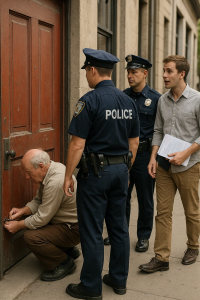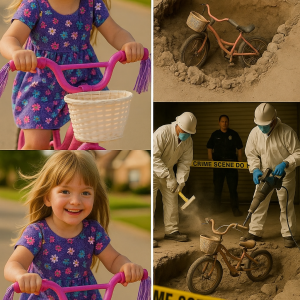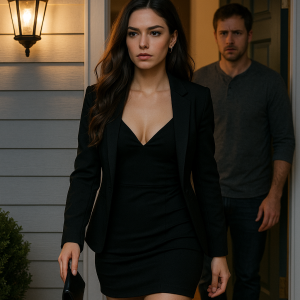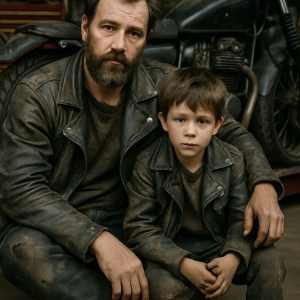My father and stepmom changed my locks to give my home to my pregnant stepsister. But what I did next flipped their entire scheme on its head.
I’m twenty-eight, and everything I’ve built rests inside the walls of the house my mother left me after she passed five years ago. It’s nothing extravagant—three bedrooms, a small yard—but it’s more than a structure. I can still picture her at the stove, her laughter drifting in through the garden window. This home is her legacy, a piece of permanence she worked her whole life to give me.
She was my one steady parent. My dad? He checked out long before. After the divorce, he remarried fast, molding his life around his new wife and her daughter, Savannah. Savannah is twenty-five now, pregnant, entitled, and convinced life owes her comfort. My dad and stepmom have fueled that belief for years.
I stayed away from their drama. My house was my safe place. But when Savannah’s boyfriend bailed a few months ago, my peace was put in jeopardy. She went running back to our parents—and soon after, I got a call from my dad asking to “sit down and talk.”
The ambush was obvious the moment I walked into their kitchen. Dad, stepmom, and Savannah sat lined up at the table, Savannah rubbing her pregnant belly like she was center stage. After empty small talk, my stepmother got straight to the point, her voice sticky with fake sympathy.
“Well,” she said, “since you’re all alone in that big house… it only makes sense for Savannah to move in. For the baby. You don’t have a husband or kids. You could find a smaller place.”
It wasn’t a request. It was a decree. My dad even said they’d already looked up apartments for me, as if that made it more reasonable. To them, my home wasn’t a legacy—it was just a resource waiting to be reassigned.

I stared, stunned by the audacity. “No,” I said flatly. “That’s not happening. Mom left me that house.”
My stepmom’s fake smile turned brittle. “This isn’t about your comfort. This is about family. Savannah is bringing life into this world. Isn’t that more important than you hanging onto a little extra space? You’re being selfish.”
“Selfish?” I shot back. “Keeping what my mother gave me is selfish?”
Dad jumped in, trying to play the calm middleman. “We’re not asking you to give it up forever. Just until Savannah gets settled.”
“No,” I snapped. “This isn’t about everyone—it’s about her. And you expect me to clean up the mess, like always.”
Savannah sat back smirking, certain they’d grind me down. She always got what she wanted.
But my refusal wasn’t accepted. They treated it as if I’d just opened negotiations. My dad called daily, sighing about his “disappointment.” My stepmom texted me links about supporting single mothers. Then came the unannounced visits. Dad once showed up with a box of baby clothes, asking where he could put them. “At your house,” I told him.
The final straw was Savannah showing up at my door with a stroller in her trunk. “Help me unload this,” she said like it was obvious. When I refused, she erupted—accusing me of heartlessness, screaming that family was supposed to stick together. “You’ll regret this,” she spat before storming off.
A week later, Dad appeared at my door with a realtor. That was when I knew this wasn’t a passive campaign—it was an invasion. That night, I installed cameras. I needed proof.
Then it happened. One evening, my key wouldn’t fit. My lock had been changed. My house—my sanctuary—had been taken. A note taped to the door read: “We’ve changed the locks for safety. Call us to discuss.” Signed by my dad.
I called immediately, voice shaking. “What the hell is this?”
“It’s temporary,” he said smoothly. “We thought this was the best way to make things easier for everyone.”
“For everyone?” I snapped. “You mean for you and Savannah. This is illegal. You have until tonight to fix it, or I’m calling the police.”
His tone shifted fast—pleading now. “Don’t escalate. It’ll make the family look bad.”
“Not my problem,” I said, hanging up.
Hours later, the locks were changed back. But something in me broke. This wasn’t just harassment anymore—it was war.
I hired a lawyer. After laying out everything—the pressure, the unannounced visits, the illegal lockout—he leaned back in his chair and told me something that made my blood run cold.
“Your father already tried to contest your mom’s will. Months ago. He was searching for loopholes to claim the house as family property.”
It hit me like a punch. This wasn’t about housing Savannah. This had been in the works long before.
I confronted him directly. No warning, just showed up. “I know you tried to fight Mom’s will,” I said. His excuses stumbled out—lies about doing what was “best for the family.” Finally, his temper snapped: “That house is too big for you! Savannah deserves stability!”
“And that means stealing mine?” I shot back. “You planned to rob me of the only thing Mom left me. Don’t ever pretend this was about family.”
Weeks later, the silence broke with court papers. My dad had filed to contest the will, arguing Mom wasn’t of sound mind when she signed it. The same man who abandoned her was now attacking her memory.
The court date came. Savannah arrived playing the martyr, baby in arms, tears already primed. Dad looked like a man convinced he’d win.
But my lawyer wasn’t there to play nice. She laid out the timeline—harassment, lockout, police reports, camera footage. Then she played the voicemail: Savannah’s voice dripping with venom.
“If I have to burn your life down to get that house, I will.”
The judge’s face didn’t twitch, but her pen froze.
Then came the text. My father to a realtor, months earlier:
“Want to flip my late wife’s house. Can’t get the kid out yet, but working on it.”
The silence was suffocating.
The judge ruled instantly. “The will stands. The property belongs fully to the respondent. The petition is without merit. Furthermore, I recommend a restraining order.”
My father’s face fell. Savannah cried on cue. But it was over.
The next morning, I filed the restraining order. Then I did the harder thing—I packed away the old family photos with Dad in them. Not destroyed, not erased. Just… put away.
Months passed. My house filled with laughter again. I hosted dinners. I turned my childhood room into an art studio. For the first time, the house didn’t just feel like something Mom left me—it felt like mine.
I still catch wind of Savannah’s cryptic posts online: “Family can hurt you the most” or “Some people care more about empty space than blood.” Let her tell whatever story she wants.
I know the truth.
I walk my halls in peace. I drink coffee by the window where my mom once gardened.
Because the house still stands.
And so do I.









